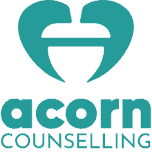Don’t sting like a bee, live like a bee: focusing on community care
We’ve all heard it before, the differences between the Western individualistic culture and the Eastern collectistic culture. Let’s not beat around the bush, the perspective pushed onto us through media and text has been that the Western world and its practices are superior to that of the Eastern world. However, does that mean that the individualistic mentality is more effective and helpful than the collectivistic practices of togetherness? No, it’s not. How can I offer such a succint and direct response? Well, humans are social creatures and not only does the evolutionary perspective support this but so does history. No, social doesn’t mean that we have to always enjoy talking and being in the company of others. This describes an extrovert, not a social creature. Social creatures need others to survive and even more so to thrive. We need “Community Care.”

Bees are phenomenal creatures because despite living in communities, they have independent roles to help their own hive as well as neighboring hives. They even extend their support to the ecosystem at large, which other species benefit from as well. From pollination to honey production, they are essential to our survival and they wouldn’t be able to do it with an individualistic practice.
Have you heard of the saying, It takes a village to raise a child? Consider a single parent, if they rely on anyone for childcare, even if it’s paid, that’s their “village”. The focus of this article is to let you know that we don’t need to strive to be as independent as the society misleadingly wants us to be. In fact, my hope is to normalize the reality that we are better off with accepting the support of others, we can ask for help in the way we need it, and that we should be open to building our network to support others.
When I had my son few years ago, my sister who lives in a close knit German community with her three kids suggested I reach out to our sister-in-law who lives near me to help watch my son one night. This way I could get more than a couple hours of sleep at night and when the time came, I could offer a night to watch her new born. My instant reaction was,
that’s impossible and also what an unusual idea, who would offer such a thing? More importantly, how could I ask such a thing? I had chosen to have this child and I should alone master the art of being sleepless. I never knew how to reach out to request what felt like such a big ask, and so I never did. I was sleep deprived for a long time until I reached my breaking point and turned to a professional for some sleep care. But that’s a different story. The point here is that I had people I could’ve reached out to and built this connection. Yet, there’s something that stops us from doing that.

The idea of asking and accepting support from others gives rise to our insecurities of how self-reliant, independent, and successful we are. This extends from adolescence where we may not feel comfortable asking for friendship advice from our caregivers to moving out for post-secondary education and feeling the pressure to navigate the world without any roots. The gap only gets bigger as we feel the responsibility to create a family unit and overcome all barriers and hurdles with just one other person, if that at all.
What if we just slowed down and normalized that we all need a little support in some things sometimes and that’s okay.
This reconfiguration can dethrone us of the pressure to carry all the burdens of life independently. With this, we can humbly turn to our current social supports in our hive or courageously extend our existing circle of care to other communities.
Another difficulty we experience in branching out for supports is the discomfort in setting boundaries to advocate for our needs.
Essentially, this challenges the “beggars can’t be choosers” motto. First of all, requiring support doesn’t make us beggars and it doesn’t put us in a vulnerable or desperate position! And when did choice, especially in the Western democratic world become a negative thing? Allow us to reclaim that when we reach out for support, we are centered, we are aware, and we are making a cognizant effort to develop a deeper relationship. Consider it equivalent to someone who wears their heart on their sleeve. They risk getting hurt but have the strength to recover if they experience a heartbreak.
When we ask for support, we can ask for what we need and how we need it.
Some basic tenets of healthy relationships are open communication, respect, and trust. When we’re looking to expand our team, we may need to first focus on developing healthy and supportive relationships. Once we lay down the ground work of secure relationships, we can build on them with more ease. If some support feels to big to ask, lead with that when asking your safe people. Let them know the different parts of you coming up when you’re looking for some support. When we offer insight, we’re more likely to be understood and be offered a response that feels supportive than when we shut ourselves off.
For someone who’s gotten her sleep back, I’d be happy to offer a new mom a night of restful sleep because I know I can catch up the next day or night. Perhaps if I’d asked, I would’ve opened the door to a new practice in my family or my social circle. That’s not to say I missed my boat entirely. Over the years, I’ve gone back to work and school with a toddler and I’ve become comfortable asking for support in childcare in the way I needed it, when I needed it. That doesn’t mean I got it exactly how or when I needed, and that’s okay because flexibility in life is also a keystone. The support did however get me closer to dethroning the pressure of carrying all the burdens of this Western independent individualistic world. A good riddance indeed!
So adopt the lifestyle of a bee and balance the art of being independent while accepting from and offering support to those around you.
If you need assistance with this, let us be a part of your community of care. Reach out to us here.
Written by a past intern at Acorn Counselling.





